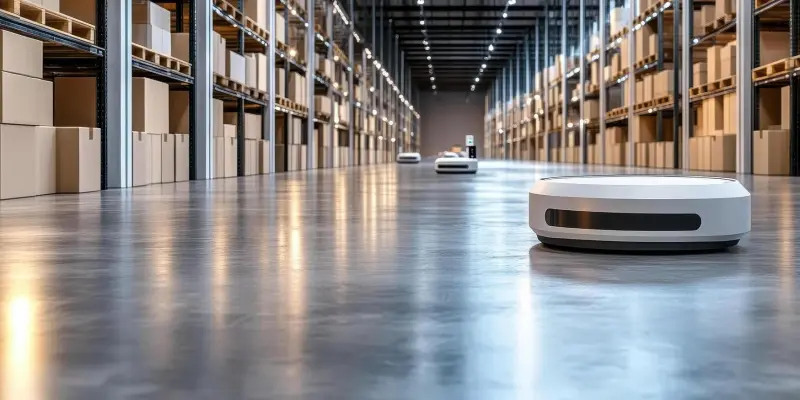The rapid advancement in technology has led to innovations transforming various industries, and the logistics sector is no exception. Recent developments have introduced Vulcan, Amazon’s latest innovation in warehouse robotics. This touch-sensitive robot, recently unveiled in Dortmund, Germany, represents a breakthrough in how warehouses operate, emphasizing safety, precision, and collaboration between humans and machines. Unlike multipurpose robots like Tesla’s Optimus, Vulcan is specifically designed for tasks that demand a high level of precision and pose safety concerns, thereby highlighting the potential of specialized robotic solutions. This new robotic system boasts AI-driven force feedback sensors that allow it to handle tasks traditionally requiring human dexterity, such as regulating grip strength and recognizing contact to prevent damage. With Vulcan, Amazon aims to harmonize the relationship between robots and humans, enhancing efficiency without entirely replacing the human workforce.
The Collaborative Future of Warehouse Work
Vulcan exemplifies how robotics can enhance human labor rather than replace it. At Amazon, robots currently process around three-quarters of customer orders, yet Vulcan’s introduction has spurred hundreds of new job opportunities. This indicates a shift toward collaborative efforts in warehouse work, focusing on smarter and more cooperative systems. By improving ergonomics and minimizing workplace injuries, Vulcan enables humans to concentrate on cognitively demanding tasks, fostering a safer and more efficient environment. This strategy highlights not only the significance of human involvement but also promotes a synergistic workplace where humans and robots partner to maximize productivity.
Future logistics robotics will likely emphasize precision, safety, and worker well-being over merely substituting human labor. This shift reflects how companies like Amazon view automation—enhancing worker capabilities with cutting-edge tools. Vulcan represents a step forward toward a future where technology both accomplishes tasks and enriches the human work experience.

